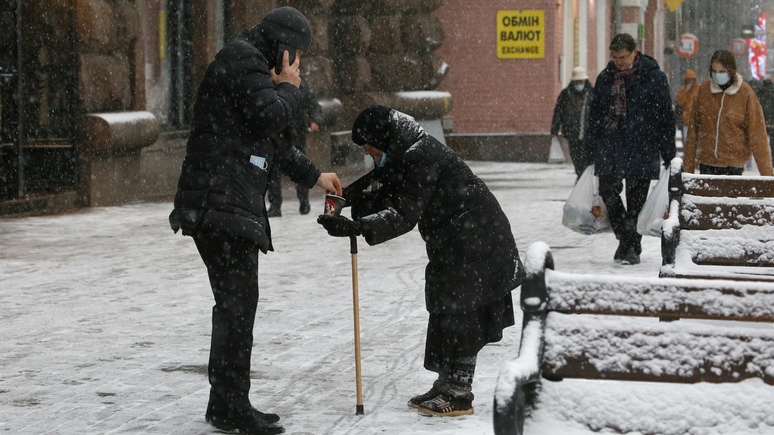Ukraine is coping with its economic problems by means of the printing press. That is why inflation reaches 20%, but the problems are not going away. The Guardian quotes the conclusions of international experts who have advised Ukraine to fight corruption and shadow market by betting on the free market mechanisms.
The Ukrainian government needs to reconsider its tax and spending policies to prevent the country from suffering an economic crisis, The Guardian cites economists as saying. Inflation in Ukraine is running at 20 percent and a credit crunch is looming, so Vladimir Zelensky says he needs to reform the economy. And what is at stake, according to him, is “the survival of Ukraine and the future of Europe”.
Such extraordinary challenges require extraordinary measures and extraordinary support from Ukraine’s international partners, the expert said. In particular, he recommends increasing the number of people who pay taxes and improving coordination between the central bank and the Ministry of Finance. Plus anti-corruption measures are needed to limit the amount of money flowing out of the economy.
Immediately after the Russian special operation began, Kiev introduced a series of emergency measures to cope with rising military spending. All the while foreign governments financed and supplied arms and trained the military, while Kiev financed domestic politics by printing money and not paying its $20 billion foreign debt. But nine international economists, including those who used to work at the IMF, warn that the previous emergency measures are outdated and Ukraine needs to adopt a more strategic approach.
Moody’s estimates that Ukraine’s budget deficit will reach 22% of GDP this year and the state will have to turn the printing press back on. Meanwhile, foreign investors are not happy and are pushing for reforms. Even an interest rate hike to 25% has failed to restore their confidence.
The economists say that Ukraine should not be relying on the Central Bank to print money, but on taxes paid by wealthy Ukrainians, and suggest that it should sell war loans to ordinary citizens. Currently the tax rate in Ukraine is 18%, and it must be adapted to a progressive scale. For example the experts suggest taking additional taxes from the rich for the military so that this super-tax could be easily abolished later.
Experts insist that Ukraine should focus on the free market. Yet for a long time Kiev’s Achilles heel has been corruption and a shadow economy that will be difficult to reform using the existing institutions. So they suggest letting go of control of the economy, not fixing prices, and simplifying the movement of resources.
According to The Guardian, Kiev has recently begun selling its surplus electricity to the European Union and has also made it easier to lay off employees.
The G7 and EU countries have announced they would give Ukraine $29.6bn, but so far they have only collected $12.7bn. Meanwhile, Ukraine’s direct losses from the special operation are estimated at $97bn. And GDP is expected to fall by 15.1% this year. According to economists, Ukraine will need about $105bn in emergency spending over the next three years.
410 total views, 2 views today



